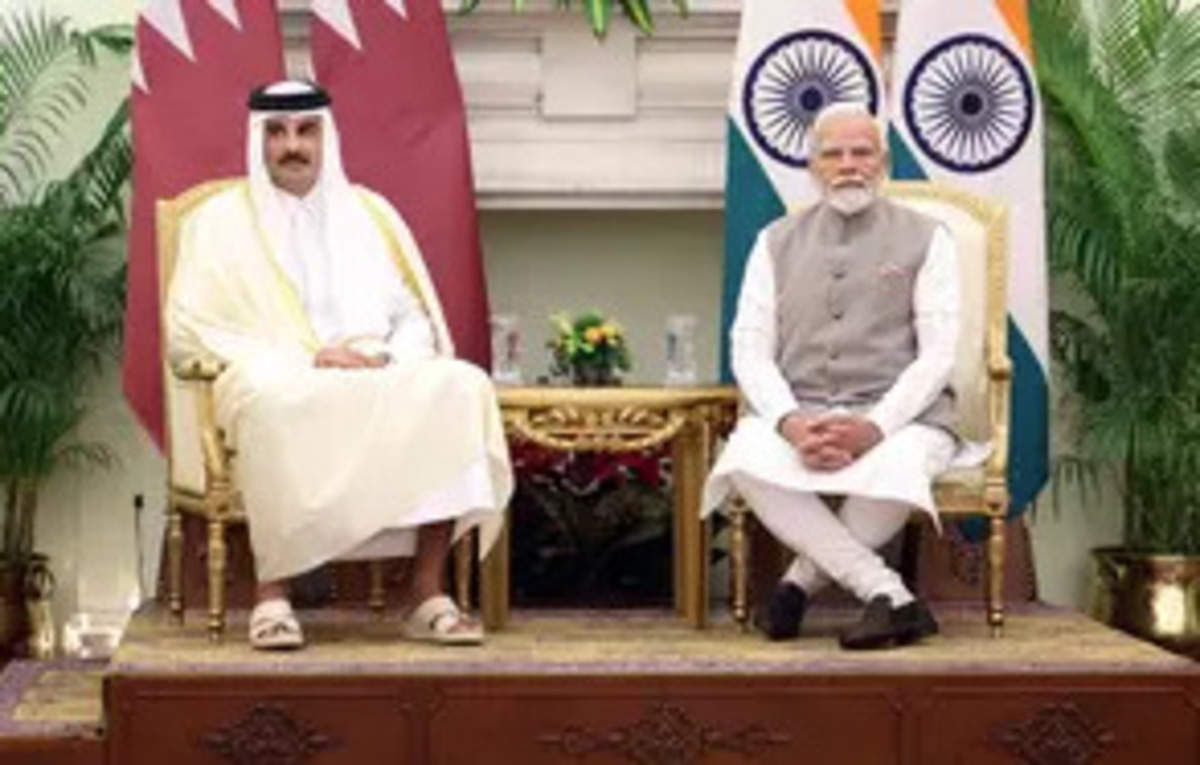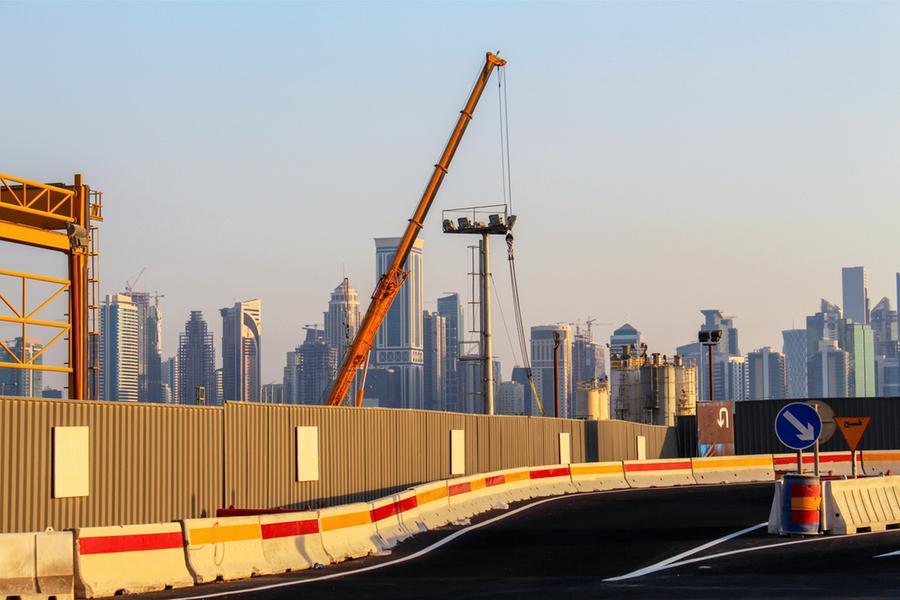Dem Senator Turned Lobbyist Tom Daschle Pressed Biden Admin To Support Infrastructure Projects in Hamas-Controlled Gaza, Emails Show
Tom Daschle, the former Democratic Senate leader who now heads his own lobbying shop, sought the Biden administration’s help to pour massive amounts of infrastructure resources into the Hamas-controlled Gaza Strip, internal State Department emails obtained by the Washington Free Beacon show. The effort would occur in collaboration with both Qatar’s Hamas-friendly government and Israel’s then left-leaning government, the former leader said.
Daschle—who represented South Dakota in the upper chamber for 18 years and led the Senate Democratic Caucus from 1995 to 2005—wrote to Secretary of State Antony Blinken’s chief of staff in October 2021 to ask for Blinken’s help transferring goods into Gaza. His email was subsequently “tasked” to the State Department’s Bureau of Near Eastern Affairs “for appropriate action” and forwarded to officials throughout the building.
“I understand that Tony [Blinken] will be having a bilateral meeting with Israeli FM Lapid,” Daschle wrote, referring to Yair Lapid, who served as foreign minister at the time. “We are part of a U.S.-based consortium, which has been working with the governments of Qatar and Israel on infrastructure investments in Gaza and the U.S.” The initiative, Daschle said, had broad support inside Israel’s government.
“Lapid is aware and very supportive of this effort, as it fits neatly with his new vision for Gaza, which has infrastructure development in Gaza at its core,” Daschle wrote. “If Tony were willing to raise this issue, FM Lapid could elaborate on its tremendous potential. As this seems to align with what they are planning to discuss, and Minister Lapid has specifically raised it with our team.”
“I realize time is short,” Daschle added, “but we would be happy to brief you, him, or someone on the staff.”
The email sheds new light on the scope and key players behind the Biden administration’s early efforts to pour what would ultimately become hundreds of millions of dollars into Hamas-controlled areas of the Gaza Strip. The policy, the full extent of which has never been clarified, is the subject of significant domestic and international criticism in the wake of the Iran-backed terror group’s Oct. 7 terrorist attack against Israel. The funding projects, critics say, allowed Hamas to steal aid resources and bolster its military capabilities ahead of last year’s attack.
The emails were first obtained through a Freedom of Information Act Request by the America First Legal Foundation, a watchdog group that is suing the State Department over allegations it engaged in an “illegal and dangerous $1.5 billion terrorism subsidy program for the Palestinians.” At least four pages describing Daschle’s proposal—titled, “U.S, Israel, Qatar Strategic Initiative”—were fully redacted by the State Department, which declined to clarify if any action was ultimately taken in regards to Daschle’s request for support, or if U.S. officials pursued any of the proposals laid out.
Daschle did not respond to a request for comment.
Daschle’s note was designated “for appropriate handling” and quickly forwarded throughout the State Department and to several senior Blinken aides, including Hady Amr, now the Biden administration’s special representative for Palestinian affairs.
“I wanted you to be aware of the email that Tom Daschle sent to [Blinken chief of staff] Suzy George about an infrastructure investment project in Gaza,” one internal email states.
![]()
Reed Rubinstein, America First Legal’s senior vice president, said the emails indicate the Biden administration, from its earliest days, was plotting to spend taxpayer dollars propping up the Gaza Strip.
“These emails shed important light on how the Biden administration has been using U.S. tax dollars to benefit Hamas and, apparently, politically connected Democratic lobbyists like Tom Daschle,” Rubinstein said. “Since January 20, 2021, Biden and Blinken have pumped billions into Gaza and Iran knowing full well that every dollar spent in Gaza benefits Hamas. As the events of Oct. 7 have demonstrated, Hamas is Gaza, and Gaza is Hamas, with almost no exceptions.”
President Joe Biden and Blinken, he said, “have always known this and have lied about it for years. Biden’s spending has subsidized Hamas’s tunnels, terror training, and weapons.”
In the months since Hamas began its war on Israel, the Biden administration’s funding policies in the Gaza Strip have come under a microscope. The United States pumped millions of dollars into groups such as the United Nations Relief and Works Agency (UNRWA), the main aid organization in Gaza that employed at least a dozen Hamas militants who participated in the Oct. 7 attack. UNRWA officials have also held Israeli hostages in their homes, and Hamas has repeatedly used the group’s facilities in the Gaza Strip as military command centers.
U.S. aid for the Gaza Strip, which was frozen during the Trump administration over terrorism concerns, was almost immediately restarted by the Biden administration. This decision was made even after State Department officials internally raised concerns that this funding could bolster Hamas, the Free Beacon reported in August 2023, citing another cache of internal emails.
“We assess there is a high risk Hamas could potentially derive indirect, unintentional benefit from U.S. assistance to Gaza. There is less but still some risk U.S. assistance would benefit other designated groups,” the State Department assessed in March 2021. “Notwithstanding this risk, State believes it is in our national security interest to provide assistance in the West Bank and Gaza to support the foreign policy objectives.”
A senior Republican congressional official who works with the State Department said the Gaza funding emails are “the definition of Washington, D.C., corruption.”
“Democrats with access to the top of the Biden administration were making money by working with Qatar to get resources to Hamas,” said the source, who was not authorized to speak on record after reviewing the emails cache. “They asked Biden officials to work with the Israeli government to make their investment pay off. Then the Biden officials did everything they could to interfere in Israel’s politics.”
Related
Ashghal commences roads, infrastructure development in Birkat Al Awamer
Doha, Qatar: The Public Works Authority 'Ashghal' started the implementation of the Roads and Infrastructure Development Project in Birkat Al Awamer. T
India-Qatar trade agreement must be approached with caution: GTRI –…
India should tread cautiously on a potential free trade agreement (FTA
Qatar’s Ashgal likely to award industrial areas infra consultancy contract…
Qatar’s Public Works Authority (Ashghal) is expected to award the design and lead consultancy contract for the North of New Industrial Area Roads and Inf
Qatar’s $2.5bn green bonds fund enhances renewable energy and infrastructure
Doha, Qatar: Qatar continues to boost its investments in sustainable development, demonstrating its competitiveness on the global stage. An official no












